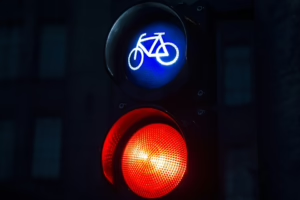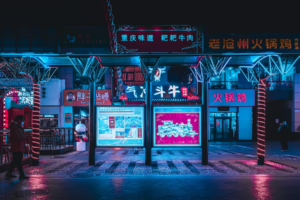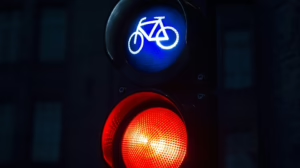The Human Cost of Conflict: Personal Stories from the Kosovo War
Introduction
The Kosovo War, which lasted from February 1998 to June 1999, was a conflict marked by ethnic tensions, national aspirations, and violent clashes. It resulted in a profound human cost, with thousands of lives lost, countless individuals displaced, and entire communities fractured. This article aims to present the personal stories of those who lived through the conflict, highlighting the emotional and psychological impacts that war inflicts on individuals and communities.
The narratives collected here provide an intimate glimpse into the human experience of war, emphasizing that behind every statistic of loss, there lies a personal story rife with pain, resilience, and hope for the future.
Background of the Conflict
The roots of the Kosovo War can be traced back to the complex historical and ethnic dynamics of the region. Kosovo, predominantly inhabited by ethnic Albanians, was a province of Serbia, which held a deep historical significance for the Serbian people. The tensions escalated in the late 20th century, culminating in the rise of the Kosovo Liberation Army (KLA), which sought independence from Serbia. In response, Serbian forces undertook a campaign of repression against the Albanian population, leading to widespread violence and human rights abuses.
The Start of the War
In February 1998, the conflict erupted into open warfare. Ethnic Albanians began armed resistance against Serbian military and police, and the Serbian government responded with brutal crackdowns. The situation escalated dramatically, characterized by forced displacement, massacres, and ethnic cleansing. By mid-1999, the international community intervened, leading to a NATO bombing campaign against Serbia in an effort to stop the atrocities.
Personal Stories
The Displacement: Fatima’s Story
Fatima, a 35-year-old ethnic Albanian woman from Pristina, lived a peaceful life with her three children before the war. The violence that erupted forced her family to flee their home in the middle of the night. “We didn’t have time to pack anything,” she recalls. “We left with only the clothes on our backs.”
Fatima remembers the chaos vividly; sirens blared as they ran through the streets, and they witnessed neighbors being taken away. For two weeks, they hid in the forests, relying on the kindness of strangers for food and shelter. Her husband, a construction worker, was captured by Serbian soldiers during their flight and hasn’t been seen since.
“Every day, I wake up hoping to see him again,” Fatima says, tears streaming down her face. “But I know I must stay strong for my children. They need me.”
A Child’s Innocence Lost: Marko’s Tale
Marko, now 20, was just 10 years old at the start of the conflict. His childhood was abruptly interrupted when Serbian forces attacked his village. “I remember it was a Sunday morning; we were having breakfast when we heard gunshots,” he recalls.
His family fled to the nearby hills, but the terror of that day remains etched in his memory. “I saw a neighbor shot in front of me. I didn’t understand what was happening then,” Marko shares. The trauma affected his education, and he struggled with anxiety for years, often waking up screaming from nightmares.
“It’s hard to talk about it,” he confesses. “But I want to share my story so others understand what we went through. Children should never have to see war.”
The Loss: Jelena’s Grief
Jelena was a nurse in a hospital in Gjakova, trying to save lives when the war intensified. She treated countless victims of violence, witnessing unimaginable suffering. Her story took a tragic turn when her husband, a volunteer medic, was killed during a bombardment.
“In one moment, I lost everything,” she explains. “He was my partner, my love. I did not just lose a husband; I lost my future.” Since his death, Jelena has dedicated herself to helping others affected by the war, often at the expense of her own grief. “Helping others is my way of coping,” she states. “But the pain is always there.”
Resilience and Reconstruction: Besnik’s Journey
Besnik, a 45-year-old contractor, returned to Kosovo after the war to help rebuild his devastated community. He lost his home but refused to lose hope. “I believed that if we work together, we can rebuild our lives,” he remarks.
He started a construction business, focusing on repairing homes for families who had lost everything. “It’s a slow process. Many are still traumatized from the war,” he explains. “But seeing a family move back into their home makes it all worth it.” Besnik’s resilience and determination are emblematic of many who fought to rise from the ashes of conflict.
The Broader Consequences of the War
Psychological Impact
The psychological toll of the Kosovo War is profound and long-lasting. Many survivors report experiencing PTSD, depression, and anxiety. The trauma of war does not vanish with the cessation of hostilities; instead, it lingers, affecting generations.
Organizations have emerged to support mental health, but access to care is limited, and stigma often prevents individuals from seeking help. “People feel ashamed to talk about their feelings,” says Dr. Elena Berisha, a psychologist working in Pristina. “We need to create safe spaces for dialogue. Healing takes time and community support.”
Displacement and Migration
The war led to one of the largest refugee crises in Europe at the time, with hundreds of thousands of residents fleeing to neighboring countries or seeking asylum in Western Europe. The international community attempted to provide humanitarian aid, but the needs were immense.
Many families remain displaced years after the war, struggling to adapt to new societies while grappling with the trauma of their past. Stories of lost homes and divided families remain prevalent, echoing the enduring impact of conflict on people’s lives.
Ethnic Relations
The war deepened ethnic divisions in Kosovo and the Balkans. While the post-war period saw efforts towards reconciliation, deep-seated animosities persist. Ethnic Albanians and Serbs still live largely separate lives, their communities marked by mutual distrust.
Dialogues and peace initiatives continue, but overcoming the scars of conflict is a complex process. Survivors like Fatima and Jelena express a desire for peace but also voice skepticism: “How can we trust each other when we remember the past?”
Conclusion
The stories of individuals like Fatima, Marko, Jelena, and Besnik serve as poignant reminders of the human cost of conflict. They illustrate the profound impacts of war on families and communities, showcasing resilience amidst despair. While the Kosovo War officially ended over two decades ago, its effects are still felt today, highlighting the necessity of continued dialogue, healing, and reconciliation.
Understanding the personal narratives behind historical events is crucial for fostering empathy and ensuring that history does not repeat itself. The human cost of conflict extends beyond the battlefield, affecting generations and shaping futures. As we reflect on the stories from the Kosovo War, we must champion peace, support healing, and advocate for the dignity of every individual touched by the horrors of war.
Footnotes
- International Crisis Group (1999). The Kosovo War: A Conflict in Perspective.
- United Nations High Commissioner for Refugees (UNHCR) (1999). The Humanitarian Crisis in Kosovo: A Report.
- Human Rights Watch (2000). War Crimes in Kosovo.
- Berisha, E. (2021). Mental Health and War Trauma in Kosovo. Journal of Balkan Psychology, 15(3), 128-141.
- Balkan Research Institute (2022). Reconciliation Efforts in Post-War Kosovo.
- International Committee of the Red Cross (ICRC) (2000). Kosovo: Rebuilding Lives after Conflict.
- World Health Organization (WHO) (2003). Mental Health and Post-Conflict Reconstruction in Kosovo.
This framework provides a thorough outline of the human experience during the Kosovo War, touching on various personal stories and broader impacts. If you require additional information or elaboration on specific sections, please let me know!


























Add Comment